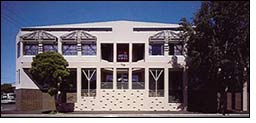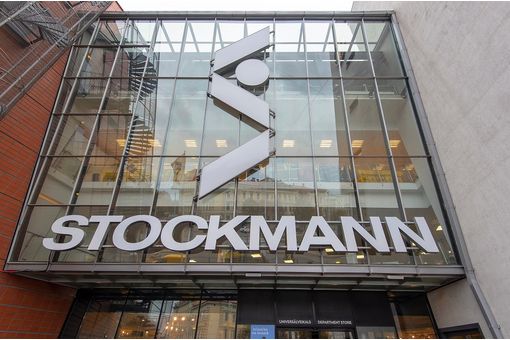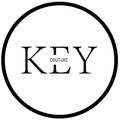Interviews
'Use registered classer wool products' – AWTA
01 May '09
5 min read

Woolgrowers offering wool without a registered classers stencil are costing themselves serious money.
This claim has come from Andrew Blanch, Chairman of a wool industry group charged with improving standards, and hence the reputation of the Australian wool clip. Mr Blanch, who is also Managing Director of the exporting company New England Wool Pty Ltd, is worried that some lines of wool are being severely discounted due to the simple fact that the wool is not prepared by a Registered Woolclasser.
“Discounts of 40 to 80 cents per clean kg are not uncommon. In many cases, this unfortunate situation is unnecessary and could be easily rectified”, Mr Blanch said. Mr Blanch explains that “This is a consequence of some growers not responding to changes in the International Wool Textile Organisation (IWTO) Regulations. In the past, IWTO did not distinguish between wool that was prepared to national industry standards (the AWEX Code of Practice) and wool where the preparation failed to meet these standards. There was also no distinction between wool prepared by a Registered Classer and wool prepared by a non-registered classer.”
This anomaly meant that unclassed wool, poorly prepared wool, or wool prepared by non-registered classers could be offered for sale with the same certification as wool classed to an industry accepted standard by Registered Classers. “This was hardly supporting the professionally trained Woolclasser”, Mr Blanch explained. “It was also apparent that in the past, a large percentage of problems and claims coming from exporters and processors re quality were from wools that were not prepared to the Code of Practice standards, including the lack of a valid classers stencil on the bale”.
This changed in January of last year. Since then, IWTO has required that wool classed by a Registered Classer and meets the clip preparation standards laid down in the AWEX Code of Practice be identified by a “P” suffix in the AWTA Test Certificate Number.
Wool which does not meet these requirements is identified by a “D” suffix in the AWTA Test Certificate Number. Price differentials have developed between “P” and “D” Certificate wools. Buyers need to assess the element of risk that is associated with lots that they purchase. Some processors restrict their orders to “P” Certificate wools only because the standard of preparation behind these lots give a degree of confidence. Buyers, however know that some of the lots with a “D” Certificate would be very suitable for their orders, but are unable to include these wools in their deliveries or do not have the confidence to support these lots fully due to their unclear preparation background.
“In many cases the grower had just let their registration lapse or was trying to save costs”, Mr Blanch said. “However, discounts noted in the auction room for “D” Certified lots indicate that it would be well worth their while to employ the services of a registered classer, or register as an Owner Classer. Growers should also be aware that under the changes in certification, they can no longer seek a “P” Certificate by using a wool broker's stencil”.
This claim has come from Andrew Blanch, Chairman of a wool industry group charged with improving standards, and hence the reputation of the Australian wool clip. Mr Blanch, who is also Managing Director of the exporting company New England Wool Pty Ltd, is worried that some lines of wool are being severely discounted due to the simple fact that the wool is not prepared by a Registered Woolclasser.
“Discounts of 40 to 80 cents per clean kg are not uncommon. In many cases, this unfortunate situation is unnecessary and could be easily rectified”, Mr Blanch said. Mr Blanch explains that “This is a consequence of some growers not responding to changes in the International Wool Textile Organisation (IWTO) Regulations. In the past, IWTO did not distinguish between wool that was prepared to national industry standards (the AWEX Code of Practice) and wool where the preparation failed to meet these standards. There was also no distinction between wool prepared by a Registered Classer and wool prepared by a non-registered classer.”
This anomaly meant that unclassed wool, poorly prepared wool, or wool prepared by non-registered classers could be offered for sale with the same certification as wool classed to an industry accepted standard by Registered Classers. “This was hardly supporting the professionally trained Woolclasser”, Mr Blanch explained. “It was also apparent that in the past, a large percentage of problems and claims coming from exporters and processors re quality were from wools that were not prepared to the Code of Practice standards, including the lack of a valid classers stencil on the bale”.
This changed in January of last year. Since then, IWTO has required that wool classed by a Registered Classer and meets the clip preparation standards laid down in the AWEX Code of Practice be identified by a “P” suffix in the AWTA Test Certificate Number.
Wool which does not meet these requirements is identified by a “D” suffix in the AWTA Test Certificate Number. Price differentials have developed between “P” and “D” Certificate wools. Buyers need to assess the element of risk that is associated with lots that they purchase. Some processors restrict their orders to “P” Certificate wools only because the standard of preparation behind these lots give a degree of confidence. Buyers, however know that some of the lots with a “D” Certificate would be very suitable for their orders, but are unable to include these wools in their deliveries or do not have the confidence to support these lots fully due to their unclear preparation background.
“In many cases the grower had just let their registration lapse or was trying to save costs”, Mr Blanch said. “However, discounts noted in the auction room for “D” Certified lots indicate that it would be well worth their while to employ the services of a registered classer, or register as an Owner Classer. Growers should also be aware that under the changes in certification, they can no longer seek a “P” Certificate by using a wool broker's stencil”.
The Australian Wool Testing Authority
Popular News
Leave your Comments
Editor’s Pick
































-Ltd..jpg?tr=w-120,h-60,c-at_max,cm-pad_resize,bg-ffffff)





.jpg?tr=w-120,h-60,c-at_max,cm-pad_resize,bg-ffffff)
.jpg?tr=w-120,h-60,c-at_max,cm-pad_resize,bg-ffffff)






